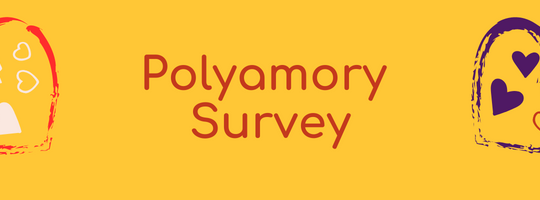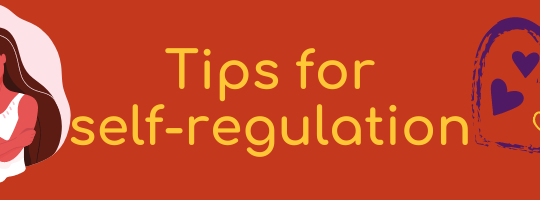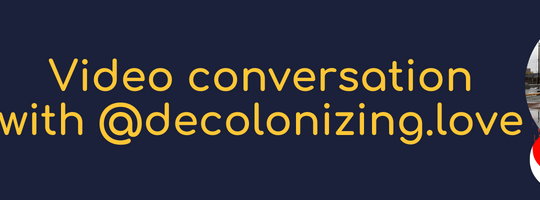As a relationship coach, I regularly work with couples who come to me at various stages of their journey into multigamy* (non-monogamy) with challenges, seemingly impossible conflicts, resentment and triggered fears. It is rare to meet a couple that book to work with me immediately a the start of their opening-up exploration, but it does happen.
*Multigamy is an umbrella term that covers a spectrum of relationship dynamics that are not exclusive to 2 people.
I think that it would save so much energy and heartache, if the process involved a great deal more rumination, introspection, interoception and communication from the start. With that in mind, I created a workshop that helps couples manage the process of opening up by considering as much of the emotional and mental ripples as possible. It’s on 3 December online, and will also be available for later streaming.
This article summarises the main points that the workshop addresses. A full online course will be available to download and experience in 2024, complete with live support from me.
When is the best time to open up a relationship?
Let’s start with when is not the best time – while other big life transitions are taking place, such as a new job, relocation, having a baby. It is ideal to recognise that you are in a good place in your relationship and feel you can talk to your partner openly about everything, including difficult emotions and triggers. Opening your relationship will not solve other issues you are having or any incompatibilities. Sometimes it can delay and distract from dealing with the issues.
Start with asking some direct questions about your relationship satisfaction and quality of communication. Do we feel we can be fully honest? Can we truly ask for our needs to be met? Can we express our deepest desires?
What do we need to consider and talk about before exploring multigamy (non-monogamy)?
Having frank and raw conversations is a foundational requirement, even if you eventually decide that you prefer not to know certain details. Considering your and your partner’s emotional and mental state, reactions to triggering situations and levels of control over your behaviour under intense emotional conditions such as anger, sadness, jealousy and envy.
How exploring multigamy can benefit our relationship?
If you have a curiosity and a sense of excitement about connecting with other people, then exploring multigamy comes with many potential benefits beyond the obvious. Primarily the benefits are to the individual rather than the relationship, with the idea that when the individuals grow, so can the relationship. When you reach your full potential and feel fully authentically yourself, you can be a better partner, friend etc.
- Being confronted with your insecurities can lead to greater self-knowledge, better resilience and ultimate healing of traumas and insecure attachment.
- Witnessing your partner come into their own self-confidence and discovering more of who they are, can help you become more intimate.
- Having mirrors to your own behaviour, other than your pre-existing partner, means more reflections, more feedback and more ways of self-understanding and growth.
- Experiencing your partner receive love and attention from others can bring a sense of sympathetic joy called compersion, which is a whole other perspective in which to experience pleasure and joy.
How do we unpack our couple’s privilege?
This refers to inherent unconscious behaviours and sometimes subtle ways in which a pre-existing couple enjoys certain privileges and power differentials, in relation to other people they are dating. Consider the largely unchallenged mainstream acceptance of the inherent importance and supremacy of a dyad relationship. Couple’s privilege is introduced to us throughout our lives from birth, through children’s stories, religion, popular media and state institutions. It is sustained through tax incentives, cultural encouragement and peer pressure.
This article expands on what this kind of privilege looks like in practice and how you can begin to unpack it.
How can we address issues of hierarchy?
We can start examining the ways in which we prioritise our partner over others. This can show itself in financial arrangements, time spent together, who we go on holiday with or bring to family and work events. Often it is defined in terms of who we choose to live with (nesting partner). In some relationships there is an agreement to allow a partner to have a say (‘veto’ power) over who they can or cannot date and to put a stop to an existing connection.
Hierarchy as it pertains to the way we treat different partners, is a matter of choice, respect for boundaries and communication.
What happens when jealousy enters the picture?
When we try something new, we cannot be expected to know how we will feel about it, and what action and behaviour this feeling will activate. So we need to prepare ourselves to welcome the unknown. Jealousy might not be an emotion that we have had to deal with previously in our relationship and all of a sudden, it’s there in full force.
Simply saying ‘I’m jealous, don’t do this’ in reaction to my partner’s behaviour is a bit lazy and doesn’t progress or solve my problem. Instead of staying in this stuck place, I can try to articulate what exactly is going on in my body, mind and feelings. What I am feeling isn’t wrong and this is not about suppressing my emotions.
I can start with asking some simple questions:
- What is the fear?
- Where does this fear come from originally?
- Which part of you is feeling insecure?
- Where do you feel it in the body?
- What need isn’t being met?
What this gives me, is a clearer sense of what I can do to help myself, instead of what I want to ask my partner to do (or stop doing). There is lots more on this blog about jealousy that can help.
How to develop compersion towards my partner?
To understand what compersion is, start with this article. It can be difficult to have compersive feelings when we feel insecure, fearful or resentful towards our partner.
It is important to accept that compersion is how you feel about your partner while jealousy is how you feel about yourself. Try to notice how you are holding these two emotions inside. Use your vulnerability to communicate this to your partner, for example by saying: “I’m so happy for you right now but also, I am experiencing anxiety/fear around abandonment/rejection which I’m working on.” You can practice developing compersion by celebrating your partner’s triumphs and joys even before exploring multigamy.
Managing the difficult conversations and resolving conflicts
If you have not mastered the art of having effective and constructive arguments and know conflict resolution techniques and skills, you will want to learn this before opening up. It is crucial that you can bring any topics that is important to you, for discussion with our partner, without fearing their reaction or worried about their hurt.
How to handle uneven dynamics?
When couples open up a relationship they often want everything to be fair and equitable. If one partner has a date then the other partner needs to also get a date. They want a sense of fairness. This can translate into desiring to have control over your partner’s other connections. For example, if I break up with my other partner, I might expect to have more time with my original partner and will resent them still having another relationship.
Avoiding such expectations is very important, and starts with acknowledging that the dynamics will never be completely fair and even. Hetero Men typically struggle to find new connections in multigamy compared to hetero and bi women. But for women, the experience can often be frustrating if they want something stable and committed. By focusing on personal growth and authentic needs and wants, rather than on what your partner is doing, you can make this easier.
When my partner wants to be open but I don’t want to be
It is more common that one person only wants to open the relationship. If that person isn’t you, you have to make a choice – do you shut down the discussion because it goes against your world view or needs and desires? or do you allow your partner to follow their needs and desires, even if they do not match your own in all ways? There are many examples of healthy and happy relationships where one partner is open or polyamorous and the other is monoamorous. They are called mono-poly relationships. They work because each partner is invested in their own independent path of growth as well as wanting their partner to follow their unique path. They focus on the needs of their own relationships, allowing for the autonomy and agency of their partner.
Should we be dating together, or separately?
When couples open up their relationship, it is common to desire to do things together. It feels safer and more familiar to explore together and it gives an illusion of control over the new unknown situation. However, dating together is much harder and more complex than dating separately, and is really recommended for ninja-level polyamorous people. Why? Because a dyad relationship is already complex so when you create a triangle shaped dynamic, there is much more emotional terrain to navigate, and more need for nuanced communication and emotional maturity.
You can learn much more about yourself and build up better boundaries when you date separately to start with. Even if you are both interested in the same person/couple, it is worth having dedicated 1:1 dates and time spent with them.
The workshop on the 3rd of December will go deeper into all of these topics and answer questions from the participants. See the link below to book.
-
 Coaching – for partners (2 or more people)£169
Coaching – for partners (2 or more people)£169 -
 From Monogamy to Multigamy – opening up a relationship (Recorded Dec23)£10
From Monogamy to Multigamy – opening up a relationship (Recorded Dec23)£10 -
Product on sale
 Starter coaching package for partners (2 people)Original price was: £580.£480Current price is: £480.
Starter coaching package for partners (2 people)Original price was: £580.£480Current price is: £480.







